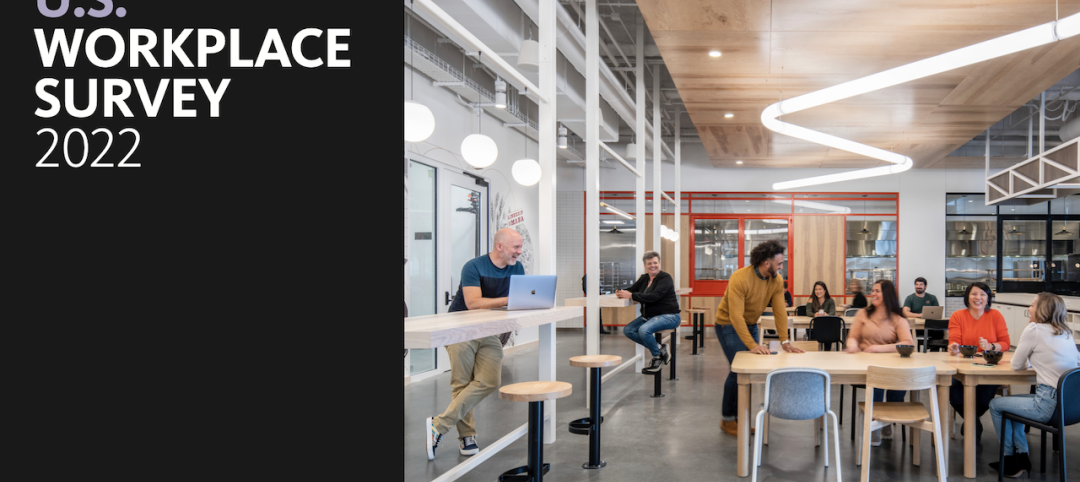Imagine a hotel whose design gives the extreme sports enthusiast an outlet to exercise his or her inner daredevil. Or a resort that caters to patients recovering from medical procedures. Or one whose graphics and murals aspire to be works of art.
These are some of 18 hot trends in hospitality design that two leading architectural firms—Hirsch Bedner Associates (HBA) and HKS Hospitality Group—have identified for 2017.
The firms divide their lists into two sections, each with nine trends. Hot architectural design trends include:
--Extreme Sports Retreats
--Gadget-free guest rooms
--Automation taking over some hotel staff work
--Greater use of LEDs to create decorative and mood effects
--Smaller guest rooms but larger gathering spaces
--Co-living spaces where groups can stay near each other
--Dual branding
--Curated leisure farming that allows guests to have greater input into what they eat and drink
--Wellness resorts where guests recoup from surgery, transfusions, and other medical treatments.
The interior design trends the firms call out include:
--Candy colors
--A return to 1970s-era kitsch
--The use of super graphics and murals
--An emphasis on wellness and biophilia
--Eclectic, playful, and youthful design
--Craft design
--Rooms within rooms that create intimacy
--A return to a midcentury aesthetic
--Live-work spaces
HBA and HKS use examples of their own recent work to illustrate some of these trends. For example, the HKS-designed Hyatt House/Hyatt Place project in San Francisco explores a hybrid model that blends extended stay with full-service. The 400-key hotel—which follows dual-branded Hyatts in Denver and Charlotte—includes two restaurants, a rooftop outdoor movie theater, and a bar-lounge that can accommodate 400 guests.
The budding “agritourist” might feel right at home at HKS’ Surf Beach Resort in Half Moon Bay near San Francisco, which is part of an existing farmland and a farm stand that will become a permanent part of the resort’s guest program.
Color and art are enlivening hotels, the firms contend. The recently opened HBA project, Aloft Guangzhou in China, features an engaging color palette filled with textured carpets and accented furniture. W Bellevue in Seattle, which opens in June, will include murals created by local street artists. And super graphics will come into play at the new Texas Live, the first hotel in Arlington, Texas, between the mammoth AT&T Stadium and the Texas Rangers’ stadium.
Biophilia and wellness are important vibes in HBA’s Four Seasons Kyoto in Japan, where guests are greeted by a bamboo forest that leads to a Japanese garden sanctuary. This hotel’s design was planned around the 800-year-old Ikeniwa Pond.
Authenticity is the key goal in the trend toward craft design. For the W Nashville residences, HKS’ design features layers of craft design as intricate, embroidered fabric pieces with sequins evoke the elaborate performance outfits of country legends like Patsy Cline, Elvis and Dolly Parton and are being used as art pieces that nod subtly to Nashville’s musical heritage. This hotel also features a range of jewel tones and an unusual mix of furniture that includes the midcentury reference and goes into ‘70s lounge with some industrial touches.
Related Stories
Adaptive Reuse | Mar 5, 2023
Pittsburgh offers funds for office-to-residential conversions
The City of Pittsburgh’s redevelopment agency is accepting applications for funding from developers on projects to convert office buildings into affordable housing. The city’s goals are to improve downtown vitality, make better use of underutilized and vacant commercial office space, and alleviate a housing shortage.
Student Housing | Mar 5, 2023
Calif. governor Gavin Newsom seeks to reform environmental law used to block student housing
California Gov. Gavin Newsom wants to reform a landmark state environmental law that he says was weaponized by wealthy homeowners to block badly needed housing for students at the University of California, Berkeley.
Green Renovation | Mar 5, 2023
Dept. of Energy offers $22 million for energy efficiency and building electrification upgrades
The Buildings Upgrade Prize (Buildings UP) sponsored by the U.S. Department of Energy is offering more than $22 million in cash prizes and technical assistance to teams across America. Prize recipients will be selected based on their ideas to accelerate widespread, equitable energy efficiency and building electrification upgrades.
Windows and Doors | Mar 5, 2023
2022 North American Fenestration Standard released
The 2022 edition of AAMA/WDMA/CSA 101/I.S.2/A440, “North American Fenestration Standard/Specification for windows, doors, and skylights” (NAFS) has been published. The updated 2022 standard replaces the 2017 edition, part of a continued evolution of the standard to improve harmonization across North America, according to a news release.
AEC Innovators | Mar 3, 2023
Meet BD+C's 2023 AEC Innovators
More than ever, AEC firms and their suppliers are wedding innovation with corporate responsibility. How they are addressing climate change usually gets the headlines. But as the following articles in our AEC Innovators package chronicle, companies are attempting to make an impact as well on the integrity of their supply chains, the reduction of construction waste, and answering calls for more affordable housing and homeless shelters. As often as not, these companies are partnering with municipalities and nonprofit interest groups to help guide their production.
Modular Building | Mar 3, 2023
Pallet Shelter is fighting homelessness, one person and modular pod at a time
Everett, Wash.-based Pallet Inc. helped the City of Burlington, Vt., turn a municipal parking lot into an emergency shelter community, complete with 30 modular “sleeping cabins” for the homeless.
Codes | Mar 2, 2023
Biden Administration’s proposed building materials rules increase domestic requirements
The Biden Administration’s proposal on building materials rules used on federal construction and federally funded state and local buildings would significantly boost the made-in-America mandate. In the past, products could qualify as domestically made if at least 55% of the value of their components were from the U.S.
Industry Research | Mar 2, 2023
Watch: Findings from Gensler's latest workplace survey of 2,000 office workers
Gensler's Janet Pogue McLaurin discusses the findings in the firm's 2022 Workplace Survey, based on responses from more than 2,000 workers in 10 industry sectors.
AEC Innovators | Mar 2, 2023
Turner Construction extends its ESG commitment to thwarting forced labor in its supply chain
Turner Construction joins a growing AEC industry movement, inspired by the Design for Freedom initiative, to eliminate forced labor and child labor from the production and distribution of building products.
Multifamily Housing | Mar 1, 2023
Multifamily construction startup Cassette takes a different approach to modular building
Prefabricated modular design and construction have made notable inroads into such sectors as industrial, residential, hospitality and, more recently, office and healthcare. But Dafna Kaplan thinks that what’s held back the modular building industry from even greater market penetration has been suppliers’ insistence that they do everything: design, manufacture, logistics, land prep, assembly, even onsite construction. Kaplan is CEO and Founder of Cassette, a Los Angeles-based modular building startup.
















